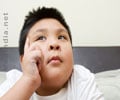Literature suggests that parents often underestimate their child’s weight. It is necessary to formulate interventions that assess children’s and parents’ awareness of obesity and diabetes risk.
The shadow cast by the obesity epidemic has been spreading slow and steady; the fiery serpent has started to eat away the youth. Obesity and diabetes are now global pandemics and have forced an increased attention on strategies to prevent the same. African American, Latino American, and Native American children in the United States appear to be the most affected ones. A recent study travelled into the perceptions of body weight among overweight and obese children and their parents.Figures suggest that nearly one out of every six overweight youth has pre-diabetes. Type 2 diabetes places overweight adolescents at increased risk of developing heart disease and other diabetes-related complications before the age of 35. Despite the spreading awareness of the dangerous accompaniments of obesity and diabetes, parents appear to underestimate their child’s weight. Wrong parental perceptions influence how parents feed their children. Lack of awareness among parents renders programmes that target children at risk unsuccessful.
A self-administered survey of 29 parents and 38 children who were enrolled in a diabetes prevention program was performed. The study population was an ethnically diverse community consisting of Hispanic / Latinos, African Americans, and Native Americans. All the children had at least 2 or 3 risk factors for type 2 diabetes.
Questions explored the perception of weight that children had. They were asked if they were overweight. The level of agreement with statements like “I worry that my weight is unhealthy” and “I worry about becoming overweight” was assessed. Similar methods were also used to assess the parental perceptions of their child’s weight.
African-American children were found to be less likely to report that they were overweight than other children. They appeared to be less concerned about their weight posing a risk to their health compared to other children.
In another study, researchers studied the cultural attitudes and perceptions toward body image, food, and physical activity among 12 overweight African American girls, aged 12–18 years. These girls reported that “a healthy body size was one with which an individual felt comfortable”.
It is a common finding that parents of overweight children often perceive their child as being at an appropriate weight. In yet another study, African-American parents defined overweight in functional terms than by measurement or charts. They opined that “bigger people are built differently; charts do not always apply.” Children preferred to define overweight in terms of physical appearance. “Medium sized, not too skinny, not too thick” meant a healthy weight!
The study has a number of limitations that question the credibility of results. The questionnaire used in the study was not tested for reliability and validity. The validity of self-reported data is also debatable. Children younger than 10 years of age may have found it difficult to interpret the questions. The small sample size places a limit on the generalizability of results.
However, despite all the limitations, the study is a landmark one since it points to key areas for further study. Healthy beliefs, knowledge, and skills must spread. Wrong perceptions of overweight status and diabetes risks can affect the efficacy of any intervention that aims at a healthy youth.
Reference: Weight perceptions of parents with children at risk for diabetes; Eva Vivian et al; BMC Research Notes 2012.
Source-Medindia














